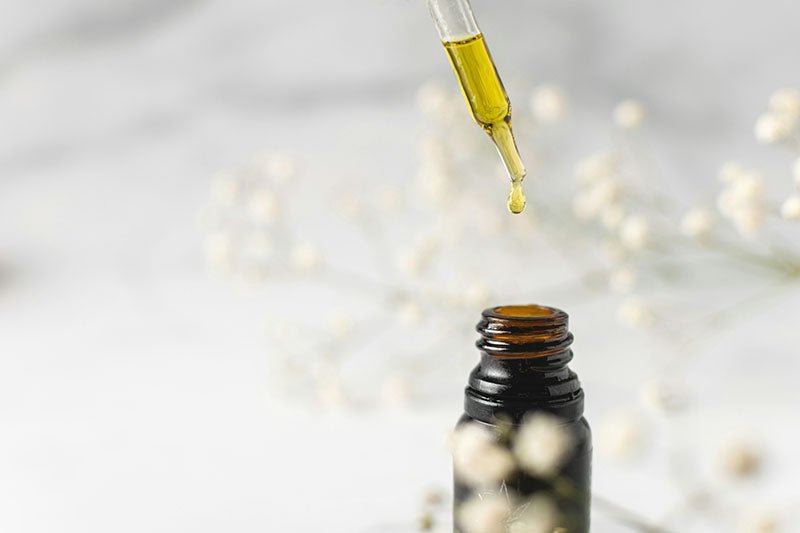CBD Oil: What Does 'Broad Spectrum' Mean?
When browsing our shop, you’ll come across a range of different options – not just in flavours, but also in the type of CBD oil. There are three types to consider: broad spectrum CBD, full spectrum, and CBD isolate. Each one will determine the range of cannabinoids and compounds present and, in doing so, will affect the oil’s overall effectiveness, potential benefits, and THC quantity.
But how exactly do they do this? Broad spectrum, for instance, is one of our most popular options, whether it’s the CBD flower itself or the oil, but if you’re new to the world of CBD, you’re not going to know why – and whether it’s the option for you – unless you understand the basics of how each different spectrum actually contains.
Broad Spectrum CBD Oil
One of the reasons broad spectrum CBD oil is a common choice for our customers is because it offers a balanced, effective experience without any THC but with a wide range of cannabinoids. Some of the cannabinoids it contains include CBDV, CBG, and CBC, all of which are non-psychoactive but potentially beneficial when it comes to supporting your wellness.
For example, CBG is often studied for its anti-inflammatory and neuroprotective properties, which can help reduce chronic inflammation and maybe even protect brain health. Meanwhile, CBDV may support neurological function, while CBD is believed to aid in pain relief and overall mood regulation.
Together with naturally occurring terpenes and flavonoids, these compounds work synergistically in what’s called an ‘entourage effect’ – enhancing the overall therapeutic impact of the oil, but not with the involvement of any THC, which can be a deal breaker for customers concerned about its psychoactive effects.
Full Spectrum and CBD Isolate
On the other side of the fence, we have full spectrum CBD and CBD isolate. Looking at full spectrum first, the way this differs from broad spectrum is primarily the presence of THC. While it contains the full range of cannabinoids, terpenes, and flavonoids found in any broad spectrum plant, it also includes a trace of THC – around 0.3% – which works to enhance the entourage effect and potentially boost the overall therapeutic benefits.
When it comes to CBD isolate, this is pure CBD extracted and refined to remove all other compounds, including THC, terpenes, and flavonoids. This makes it a popular option for those wanting to avoid THC entirely or prefer a product with consistent, high CBD concentration, without any of the additional cannabinoids and compounds that make broad spectrum CBD distinctive.
It should be noted, however, that while CBD isolate lacks those qualities of broad spectrum and full spectrum products, it may not provide the same level of therapeutic benefits for some users – with its purity and potency being the main reason it’s consumed.
Is Broad Spectrum Right For You?
Now you understand what broad spectrum means, you can start thinking about whether it’s the right option for you. This is where things can get a little tricky, as apart from the inclusion of 0.3% of THC, there aren’t a lot of differences that can give you a clear-cut answer.
So let’s look at THC for a moment. While it works synergistically to potentially enhance the therapeutic effects of CBD oil, there are some who are more sensitive to it than others. Even small amounts of THC, for instance, can cause uncomfortable side effects or adverse reactions, including dizziness, increased heart rate, or feelings of anxiety. Some regions also have strict zero-tolerance laws regarding THC, leading some to avoid it to stay fully compliant with local regulations.
Broad spectrum, on the other hand, completely cuts THC from the equation, and the benefits have been reported as more or less the same. You still get the entourage effect, with the benefits including the support of arthritis, inflammation, a promotion of relaxation, as well as improved sleep quality and pain management.
If you’re looking for something more pure than broad or full spectrum, however, then CBD isolate might be worth looking into. Like broad spectrum, there’s no risk of THC, and because it’s completely pure, you know exactly how much CBD you’re getting in each dose – which can be important for people using it for more specific medical reasons.
There’s no flavour – or, rather, the flavour and odour are neutral – but due to its flexibility for custom blending, it can be combined with other ingredients for those wanting to alter the taste, depending on how they’re consuming CBD or incorporating it into their routine. Although we should mention that this approach should be done with care, and you should always start with a low dose, increasing only if needed.
Conclusion
All things considered, the question of whether broad spectrum CBD oil is right for you comes down to your personal goals, sensitivity to THC, preference for purity, and your experience level with CBD itself. As we mentioned previously, for those looking for pain relief – specifically, anti-inflammatory pain – this is probably the most balanced option that can offer all of the necessary benefits.
It also provides a great middle ground for users who want more than just pure CBD isolate – for instance, if the pain is more intense and the isolate isn’t strong enough – but aren’t comfortable venturing into the world of THC with full spectrum products. Essentially, it allows you to experience the therapeutic potential of multiple cannabis compounds while keeping things THC-free, and that can be enough for people to make their decision and go for this option.
You have to remember, though, that this isn’t a last chance saloon. If you purchase broad spectrum CBD oil, that doesn't mean you can’t try out our other options, or test it out by starting low. In fact, we’d encourage you to start low, monitor your body’s response, and adjust or change if needed. Refining your spectrum or dosage is part of what makes CBD a personal and versatile wellness tool. Everyone’s body is different, so the key is to listen to your body and take the time to find what feels best.

